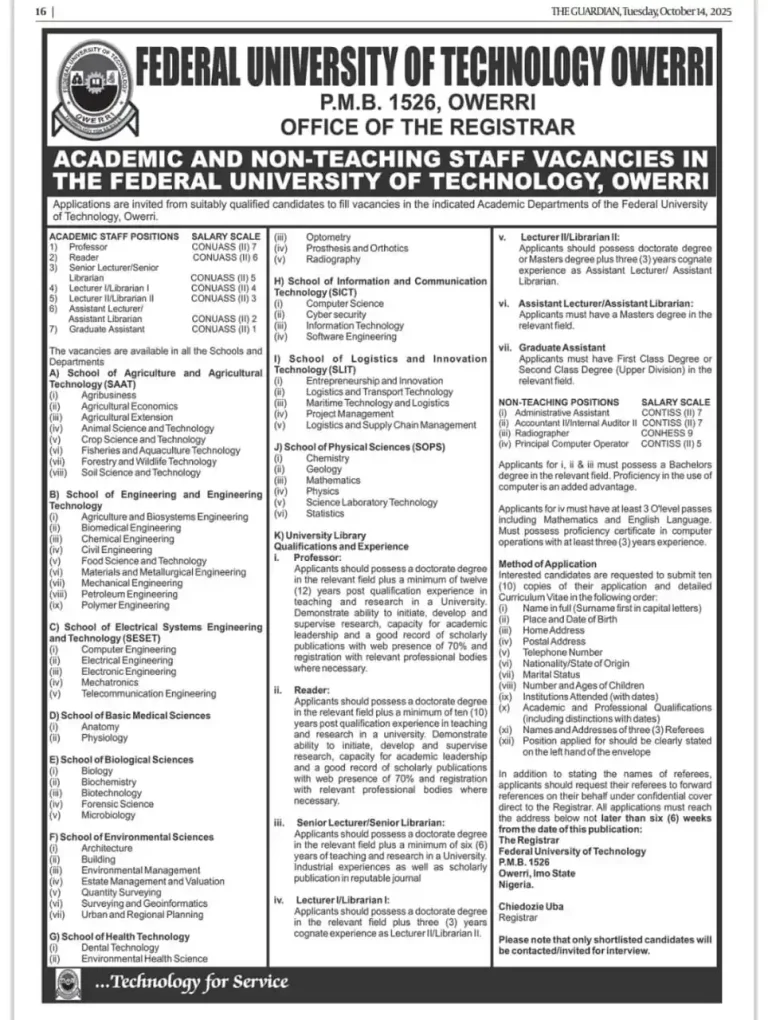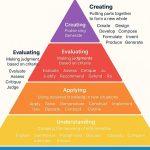
The FME TVET Initiative 2025: how to apply for TVET initiative
FME TVET Initiative 2025. Learn about available courses, eligibility, benefits, and get a step-by-step guide on how to apply for this life-changing skills acquisition program in Nigeria.
Unlock Your Potential with the FME TVET Initiative
Nigeria has one of the youngest populations in the world, yet unemployment remains one of the country’s biggest challenges. Every year, thousands of graduates leave universities and polytechnics with degrees, but many still struggle to secure jobs. Why? The reality is that academic qualifications alone are no longer enough. Employers are looking for people with practical, job-ready skills—skills that can immediately add value to industries or create opportunities for self-employment.
This is where the FME TVET Initiative comes in. Launched by the Federal Ministry of Education (FME), the program focuses on Technical and Vocational Education and Training (TVET). It is designed to equip young Nigerians with in-demand, hands-on skills that prepare them for today’s job market and tomorrow’s entrepreneurial opportunities.
If you’ve ever wondered how to turn your passion for ICT, fashion, construction, or agriculture into a sustainable career, then this guide is for you. We will break down everything you need to know about the FME TVET Initiative 2025—from its vision and benefits to the available courses and a detailed step-by-step guide on how to apply.
By the end of this article, you’ll have all the information needed to confidently take the first step toward building a skill-driven future.

Demystifying the FME TVET Initiative
The Vision Behind the Program
The Federal Ministry of Education TVET initiative is not just another government program. It is a strategic plan to close the widening gap between academic knowledge and practical job skills in Nigeria. The ministry’s vision is clear:
- Bridge the skills gap by equipping Nigerians with competencies that match global standards.
- Promote self-reliance, reducing overdependence on white-collar jobs.
- Boost the industrial and service sectors with a workforce that is both skilled and innovative.
- Empower youths to create jobs, not just seek them, thereby reducing unemployment and poverty.
This aligns with Nigeria’s broader development goals, including the push for industrialization, digital economy growth, and sustainable agriculture. For policy context on skills certification and quality assurance, see the NSQF Operational Manual (PDF) and the NBTE overview of TVET/NSQF.
What Does TVET Stand For?
TVET means Technical and Vocational Education and Training. Unlike traditional schooling, TVET emphasizes “learning by doing.” The focus is on trades, crafts, and industries that drive the real economy. From computer coding to plumbing, from tailoring to poultry management, TVET programs prepare individuals for immediate entry into the workforce or entrepreneurship.
For a quick overview of TVET in Nigeria’s context, explore UNESCO-UNEVOC’s Nigeria TVET profile.
TVET is not “less” than a university degree—it is different. It is practical, focused, and in many cases, more relevant to Nigeria’s economic realities. Across the world, countries like Germany, China, and South Korea have used TVET to fuel rapid industrial and economic growth. Nigeria is now taking that same path through the FME TVET Initiative.

Who is This Program For?
The program is open to a wide range of people, including:
- School leavers (secondary or tertiary) who want to learn employable skills.
- Unemployed youth looking for practical training to enter the job market.
- Graduates who want to supplement their degrees with technical skills.
- Individuals seeking to upskill or change careers.
Whether you want to work in ICT, start a small business in agriculture, or build a career in hospitality, this initiative is designed for you.

The Core Benefits of Joining
Gain Industry-Relevant, Practical Skills
At the heart of the program is the idea of “learning by doing.” Instead of sitting through endless theoretical lectures, participants are trained in hands-on skills that industries are actively looking for. The curriculum is regularly updated to match market demands. For example, while ICT courses cover web development and digital marketing, construction courses emphasize modern building techniques and safety standards.
Boost Your Employability and Career Prospects
With unemployment so high, employers prefer candidates who already have job-ready skills. A certificate from the FME TVET program proves that you have undergone structured, government-backed training. This makes you stand out in the job market—whether you’re applying to work in ICT firms, construction companies, hotels, or farms.
A Pathway to Entrepreneurship
One of the most powerful aspects of the program is its ability to equip participants with skills for self-employment. Imagine learning tailoring and starting your own fashion brand, or mastering fish farming and launching a small agribusiness. TVET doesn’t just prepare you for jobs—it gives you the tools to create jobs for yourself and others.
Nationally Recognized Certification
Upon completion, participants receive a nationally recognized certificate backed by the Federal Ministry of Education. This adds credibility and opens doors, whether you’re applying for jobs, contracts, or even seeking funding to expand your business. For institutions and master craft persons, accreditation information is available via the NBTE Digital TVET portal.
Courses Offered Under the FME TVET Initiative
The beauty of the FME TVET Initiative is its diversity. There’s a course for almost every interest or passion. Below are the key areas offered in 2025 (actual availability may vary by location; always confirm on the official TVET portal):
Information & Communication Technology (ICT)
- Web Development
- Digital Marketing
- Graphic Design
- Computer Hardware Repairs
- Data Analysis and Cybersecurity
Helpful resource: National e-Learning Portal (Skills section)
Construction and Building Trades
- Masonry
- Plumbing
- Electrical Installation
- Welding and Fabrication
- Tiling and Carpentry
Industry note: Learn about competency levels and occupational standards via the NSQF overview.
Hospitality and Tourism
- Catering and Culinary Arts
- Event Management
- Housekeeping and Hotel Services
- Tour Guiding
Agriculture
- Modern Farming Techniques
- Fish Farming
- Poultry Management
- Greenhouse Crop Production
Related reading (internal): Profitable Agribusiness Ideas in Nigeria
Fashion, Arts, and Crafts
- Fashion Design and Tailoring
- Leatherwork
- Hairdressing and Cosmetology
- Beadwork and Creative Crafts
Related reading (internal): How to Start a Fashion Brand in Nigeria
Step-by-Step Registration Guide
Applying for the FME TVET Initiative 2025 is straightforward if you follow the correct process. Here’s a step-by-step breakdown:
- Check Your Eligibility
- Must be a Nigerian citizen.
- Age range: typically 18–35 years (check the official guidelines).
- Basic educational qualifications may be required depending on the course.
- For latest eligibility updates, always verify on the FME homepage and the official TVET portal.
- Visit the Official FME TVET Portal
Always use the official portal to avoid scams. Bookmark this link: https://www.tvet.education.gov.ng/. You can also access it from the FME homepage ➜ Highlights ➜ FME TVET Initiative. - Gather the Required Documents
- Birth Certificate or Age Declaration
- Educational Certificates (WAEC, NECO, or Degree)
- Passport Photograph
- National Identification Number (NIN)
- Fill Out the Online Application Form
Provide accurate details. Avoid errors in your name, email, or phone number since communication will be sent to those contacts. Keep screenshots or records of your application reference where possible. - Submit and Await Communication
After submission, you’ll receive a confirmation email or SMS. Shortlisted applicants will be invited for screening or orientation before training begins. Check your email, SMS, and the TVET portal announcements regularly for updates.
Avoid scams: The FME will not ask you to pay private agents to process your application. Payments, if any administrative fees exist, will be clearly stated on the official portal or FME website.
Have Questions? We Have Answers
Q: Is the FME TVET Initiative free?
A: The training is often heavily subsidized or free. However, applicants should always check the official FME TVET portal or the FME website for any updates on administrative charges and available funding.
Q: How long is the training duration?
A: Depending on the course, training can last anywhere from 3 months to 1 year. Short courses like digital marketing may take a few months, while technical trades such as welding may take longer. For qualification levels and competency expectations, consult the NSQF manual.
Q: Where are the training centers located?
A: Training centers are usually spread across Nigeria, covering different zones to ensure accessibility. Specific locations and partner centers are communicated during registration and via the TVET portal. Institutional accreditation and related updates can also be found through NBTE.
Q: Can I apply if I already have a university degree?
A: Absolutely. The program welcomes graduates who want to supplement their degrees with technical skills. Many graduates have successfully used TVET training to switch careers or start businesses.
Take the First Step Towards a Brighter Future!
Nigeria is at a turning point. With rising unemployment and evolving industries, practical skills are no longer optional—they are essential. The FME TVET Initiative is your opportunity to get ahead.
To recap, here’s what you gain:
- Industry-relevant, hands-on skills
- Better employability and job prospects
- Entrepreneurship opportunities
- Nationally recognized certification
This is not just training—it’s a lifeline for anyone serious about building a future in Nigeria’s changing economy.
How Centres Can Apply to Become an FME TVET Training Centre
- Meet the Basic Requirements
- Must be a registered educational institution, polytechnic, vocational centre, or private training provider.
- Should have adequate infrastructure, equipment, and qualified trainers.
- Must align training with the National Skills Qualification Framework (NSQF).
- Prepare Necessary Documents
- Certificate of incorporation (if private).
- Accreditation documents from NBTE or other recognized bodies.
- Proof of facilities (classrooms, workshops, labs, etc.).
- Staff list with qualifications.
- Submit Expression of Interest (EOI)
- Contact the Federal Ministry of Education (FME) or NBTE to indicate interest in becoming a partner centre.
- This may involve filling out forms provided on the NBTE website or through official calls for partnership.
- Inspection & Verification
- FME/ NBTE officials will visit your centre to verify facilities, equipment, and staff capacity.
- Only centres that meet the minimum standards will be approved.
- Get Accreditation & Listing
- Once approved, your institution will be accredited and added to the list of recognized FME TVET centres.
- Your centre will then be eligible to host applicants during national training programmes.
- Maintain Standards
- Approved centres are monitored regularly.
- You must keep up with equipment upgrades, qualified staff, and compliance with FME/ NBTE guidelines.
Apply Here to Visit the FME TVET Portal and Apply
- External Linkin:








